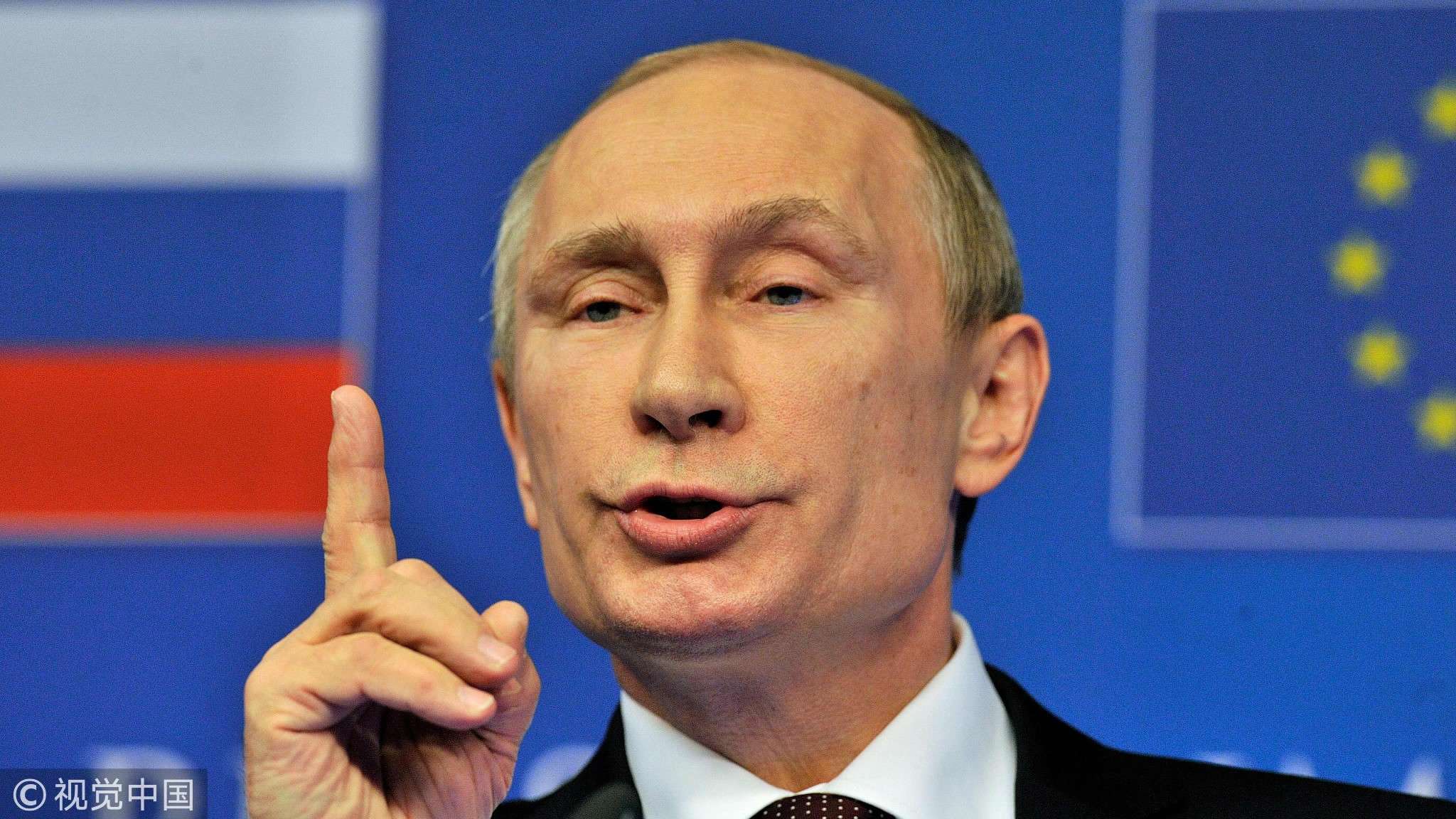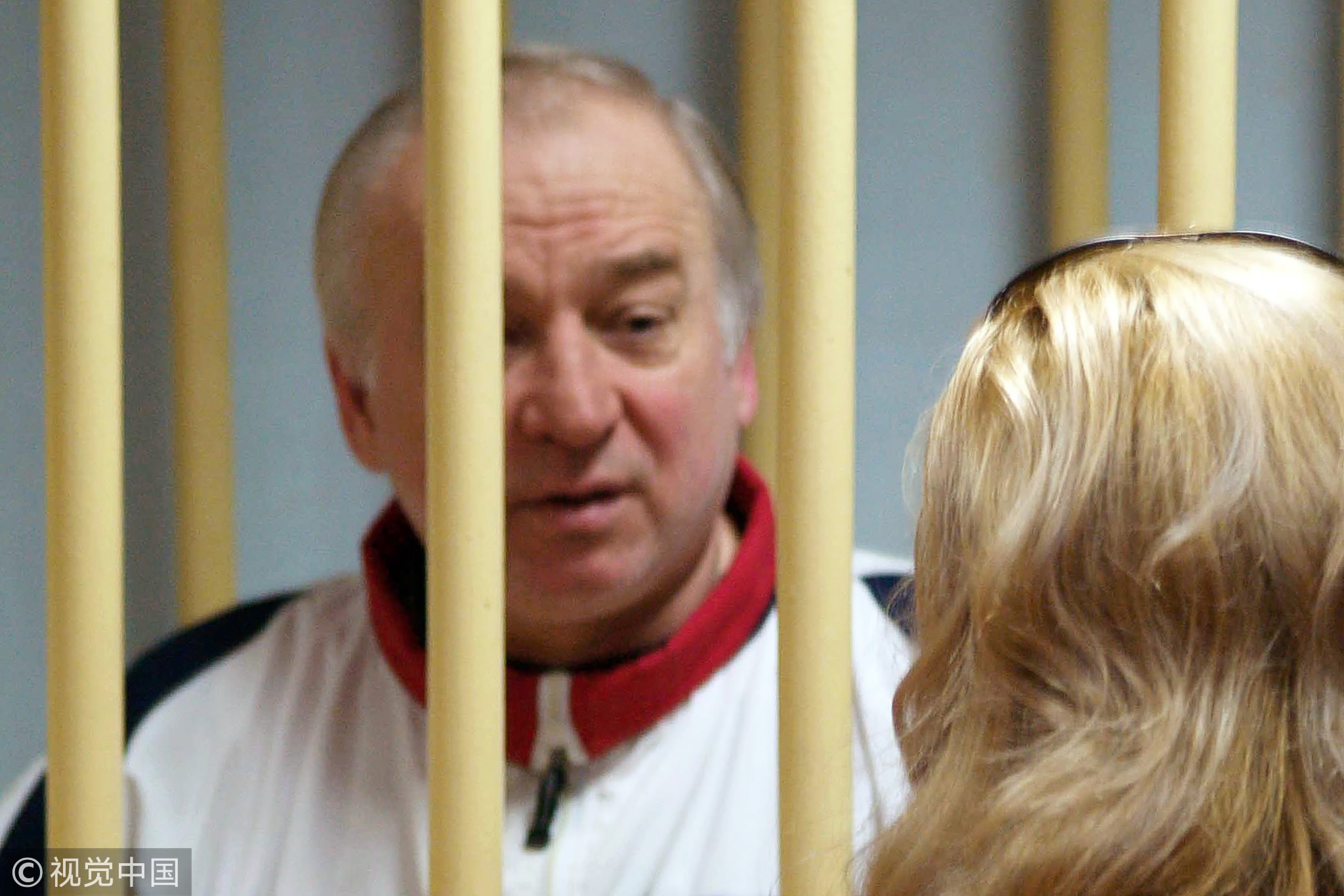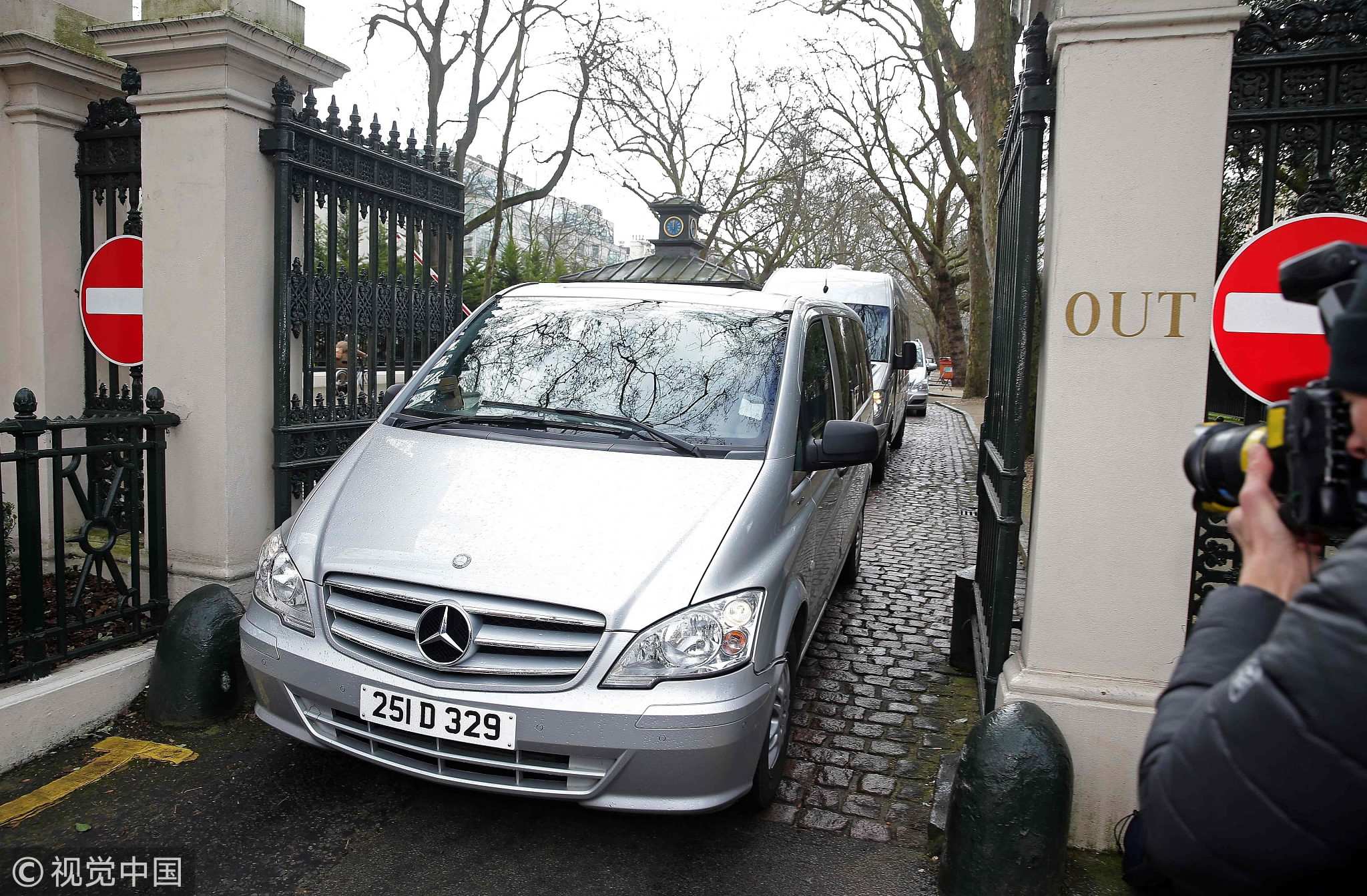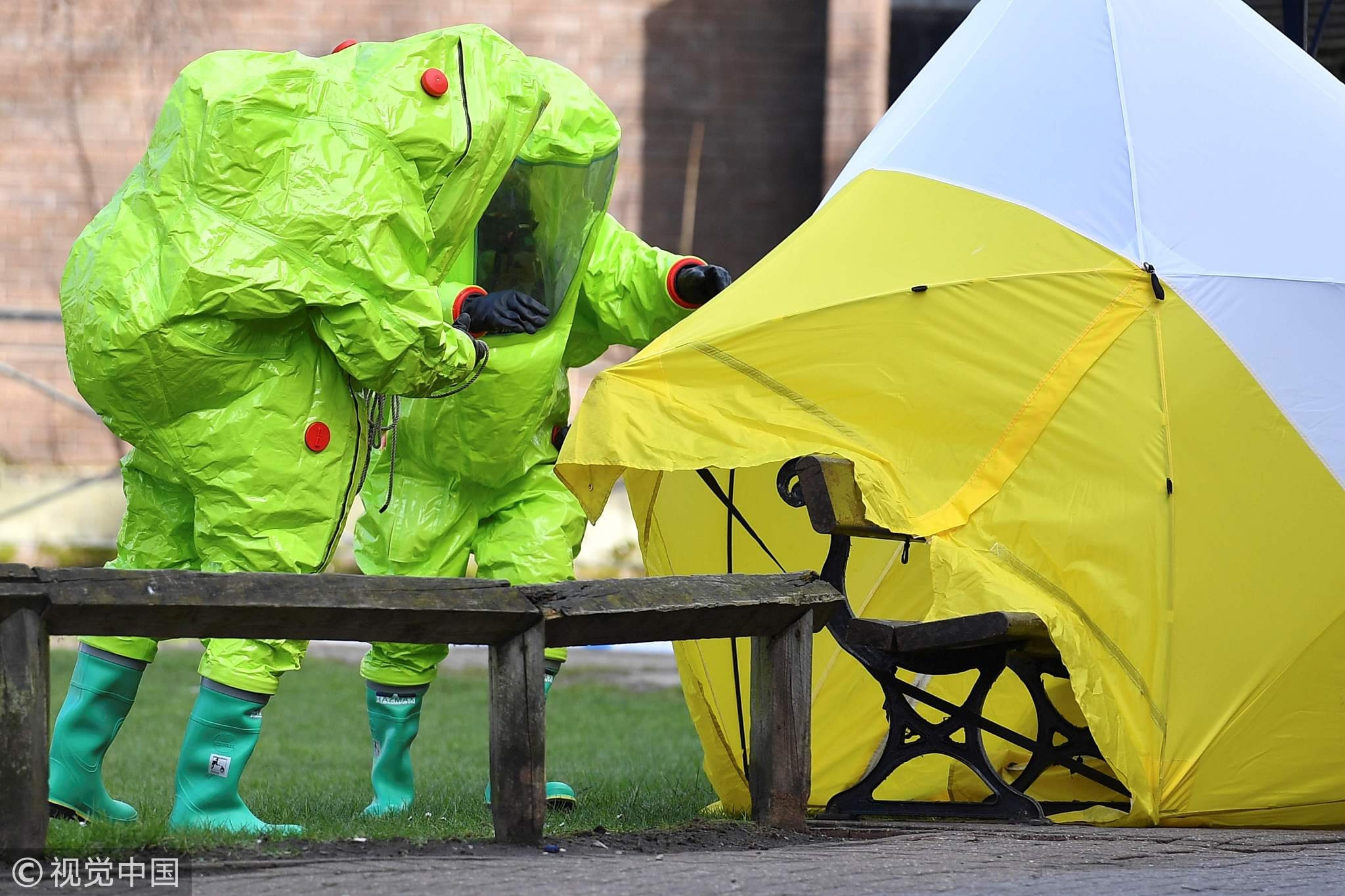
Politics
21:11, 04-Apr-2018
Russia warns the West not to bring up 'a new Cuban Missile Crisis'
CGTN

The head of Russia's SVR foreign intelligence agency said Wednesday the poisoning of a Russian former double agent in Britain was a "grotesque provocation" by the British and US security services.
Britain has accused that Russia is "highly likely" to be responsible for the attack on former double agent Sergei Skripal and his daughter Yulia in England last month.
Moscow has denied any involvement.
Read more:

Former Russian military intelligence colonel Sergei Skripal attends a hearing at the Moscow District Military Court in Moscow, Aug. 09, 2006. /VCG Photo
Former Russian military intelligence colonel Sergei Skripal attends a hearing at the Moscow District Military Court in Moscow, Aug. 09, 2006. /VCG Photo
Russian foreign intelligence chief Sergei Naryshkin warned that Moscow and the West must avoid the risk of escalating their current standoff to the dangerous levels reached at the height of the Cold War.
"It's important to stop the irresponsible game of raising stakes and to stop the use of force in relations between states, not to bring matters to a new Cuban Missile Crisis," he said, referring to the 1962 standoff between the Soviet Union and the United States that brought the world to the brink of nuclear war.
Naryshkin said that for Washington, "fighting the non-existent so-called Russian threat has become a real fixation" comparable in scale to the Cold War era.
"It has reached such proportions and developed such ludicrous characteristics, that it's time to talk about the return of the grim times of the Cold War," Naryshkin said.
He suggested that the West wants to shut itself off from Russia as it once did from the Soviet Union, saying that "seized by fear of changes, the West is ready to put up a new Iron Curtain around itself."

Minibuses and coaches with diplomatic plates leave Russian Embassy in London, March 20, 2018. /VCG Photo
Minibuses and coaches with diplomatic plates leave Russian Embassy in London, March 20, 2018. /VCG Photo
During his visit to Turkey, President Vladmir Putin said he hoped a planned meeting of the global chemical weapons watchdog would help to defuse a major diplomatic row triggered by the poisoning incident.
"We have raised 20 questions for discussion (at the meeting). I hope that during this discussion a final line on what has happened will be drawn," Putin told a news conference during a visit to the Turkish capital Ankara.
"We are interested in a full-fledged investigation. We want to be allowed into this investigation and we count on receiving relevant materials as the issue involves citizens of the Russian Federation," Putin said.
At Moscow's request, the Organization for the Prohibition of Chemical Weapons (OPCW) will hold a special session on Wednesday in the Hague on the Salisbury poisoning. Russia and the UK among other 39 members will both attend the meeting.
Earlier on Tuesday, the head of Britain's military research center said it had so far been unable to tell whether the nerve agent, identified as Novichok, had been produced in Russia.
"I want to add that according to international experts' data there are around 20 countries capable of producing such neuro-paralytic substances," Putin said.

Members of the emergency services in green biohazard encapsulated suits fix the tent over the bench where former Russian spy Sergei Skripal and his daughter Yulia were found on March 4 in critical condition in Salisbury, southern England. /VCG Photo
Members of the emergency services in green biohazard encapsulated suits fix the tent over the bench where former Russian spy Sergei Skripal and his daughter Yulia were found on March 4 in critical condition in Salisbury, southern England. /VCG Photo
Western countries, including Germany, have taken joint action in expelling Russian diplomats as a result of the nerve agent attack on Sergei Skripal and his daughter in southern England last month. Moscow has retaliated with expulsions of its own.
But on Wednesday, the German government said it still agrees with Britain that Russia is probably responsible for the poisoning of a former double agent after the head of Britain's military research center said he could not say whether the nerve agent had been made in Russia.
Source(s): AFP
,Reuters

SITEMAP
Copyright © 2018 CGTN. Beijing ICP prepared NO.16065310-3
Copyright © 2018 CGTN. Beijing ICP prepared NO.16065310-3